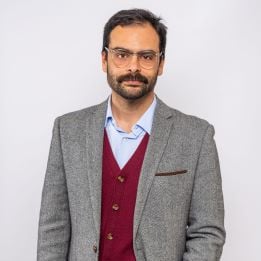

Legal and administrator manager | Winterbotham Fiduciaria




Jose Lima Eizaga
Legal and administrator manager | Winterbotham Fiduciaria
Team size: 5+
How do you approach managing legal aspects during periods of instability or crises, and how does your legal strategy align with the broader business strategy to ensure the organisation’s resilience?
Periods of crisis are never easy to navigate, but Uruguay has benefitted from a relatively stable environment in recent years. This stability has enabled us to develop long-term business strategies with greater confidence. Nevertheless, in the financial markets—where our company operates on a daily basis—the most significant challenges recently have stemmed from the global impact of geopolitical conflicts and the increase in US interest rates over prior years.
Both developments prompted us to re-evaluate and adapt some of our financial products and investment strategies. As a legal and administrative team, our approach has been to work closely with business units to ensure legal frameworks remain robust, flexible, and aligned with strategic objectives. This includes proactively identifying legal risks and ensuring regulatory compliance while enabling the agility needed to respond to market shifts.
What are the main cases or transactions that you have been involved in recently?
Recently, our team played a central role in the structuring of a financial trust that successfully raised USD 55 million in Uruguay’s local securities market. The capital was earmarked for the acquisition of land in the eastern region of the country, to support a long-term forestry project aimed at delivering sustainable returns for investors over the life of the trust.
Now that the trust is operational, our team manages its daily legal and administrative matters. This includes structuring significant timber sales agreements (totalling USD 9 million for the 2023–2025 period) and navigating the increasingly complex market for carbon credit transactions—an area that presents both legal and commercial challenges due to evolving international standards and verification processes.
What measures has your company taken to embed sustainability practices into its core business operations, and how does the role of the General Counsel contribute to this?
Sustainability has been an integral part of Winterbotham’s identity from the outset. In terms of employment practices, we have long prioritised fair working conditions, non-discrimination, and ethical standards. Beyond compliance, we actively invest in the development of our team, supporting postgraduate studies at leading institutions to strengthen our collective expertise in sustainable finance and governance.
The General Counsel plays a pivotal role in these efforts, particularly in policy design and corporate governance forums. Legal counsel ensures that sustainability considerations are not just aspirational but embedded in operational practices and strategic planning—offering legal insight into ESG policy development and regulatory alignment.
What do you see as the major legal challenges for businesses in Uruguay over the next five years, and how are you preparing to address them?
One of the most pressing legal challenges for Uruguayan businesses lies in meeting the growing sustainability requirements of international buyers, especially in key markets such as the US and EU. Uruguay’s economy relies heavily on raw material exports, and foreign partners are increasingly expecting demonstrable compliance with ESG standards.
In response, we are actively participating in national forums focused on the development of new sustainability regulations. As fund administrators and financial trustees, we are seeing more frequent requests for ESG reporting from investors, which in turn demands ongoing updates to our internal knowledge and compliance practices.
More broadly, if Uruguay is to deepen and expand its capital markets, we must ensure that the regulatory and tax frameworks provide meaningful incentives for both institutional and individual investors. Strengthening these conditions will be vital to fostering sustainable economic growth and capital flow in the years ahead.